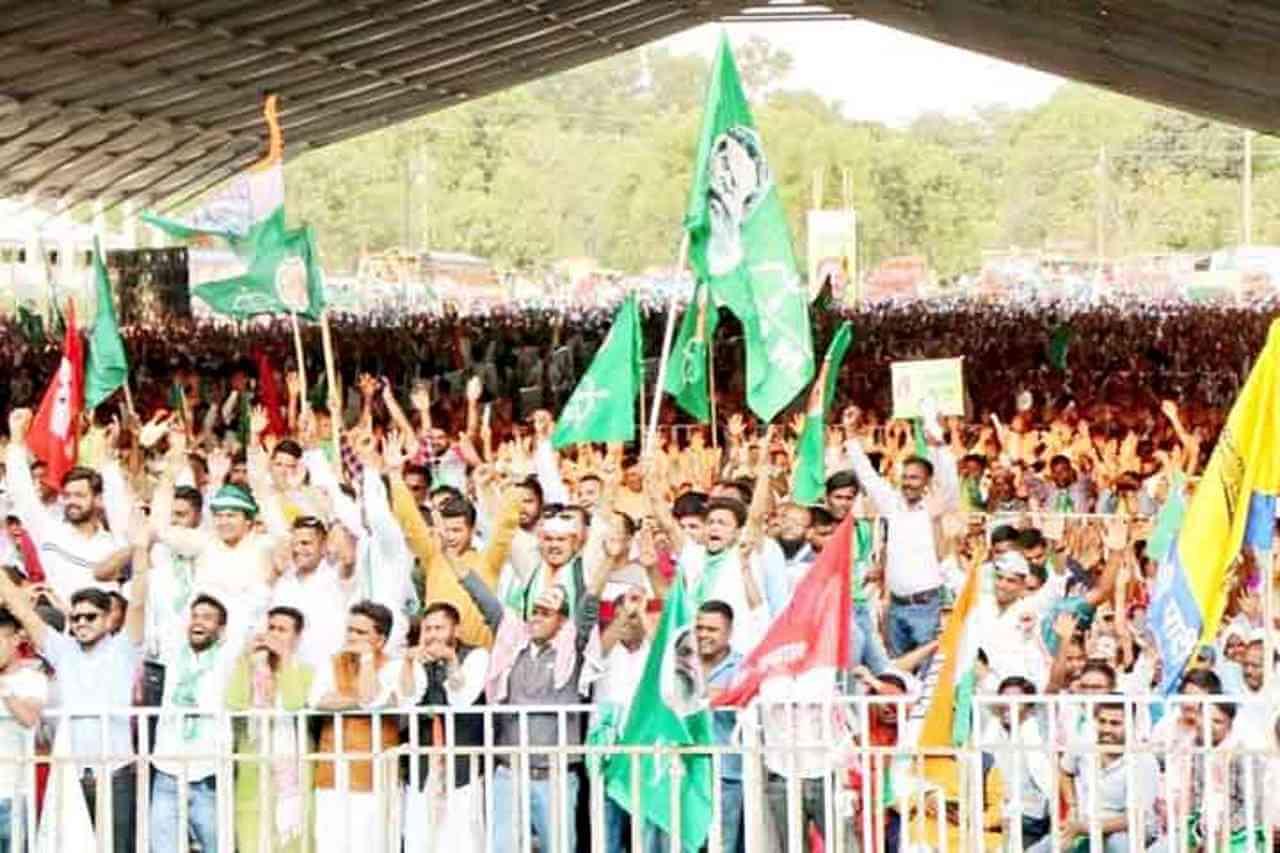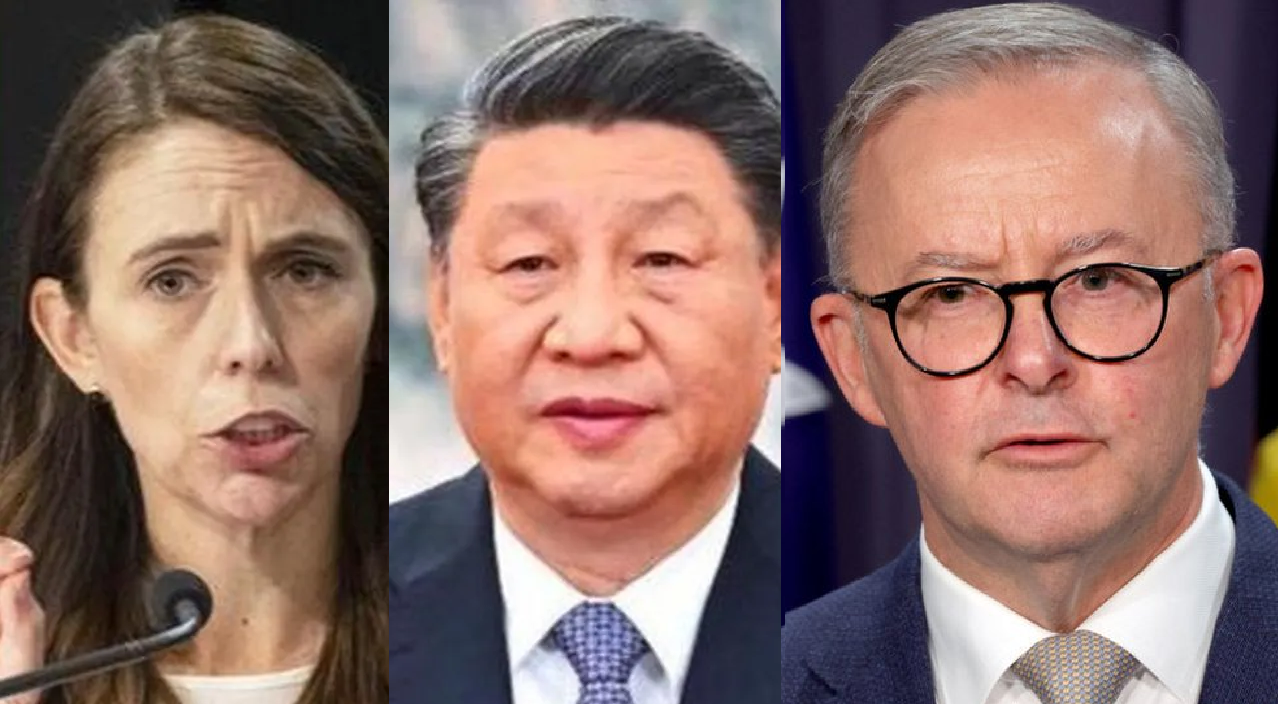India has been a nation defined by, and distinguished for, its secular principles. Even during times such as the demolition of the Babri Masjid in 1992, or the Gujarat riots of 2002, the secular ethos of the nation has never been questioned on a global scale. There were two primary reasons for this, the first being the idea that India is a country where secular ideals are pristine, while the second was the perceived notion that India was one of the few postcolonial states where democracy and universal suffrage have become parts of the national imagination. Since independence in 1947, India has retained a global image which was coexistent with the principles of secularism and democracy. Indian democracy has stood the test of time, survived countless wars and waves of imperial aggression, until recent times when these principles have been threatened by forces that claim to be the ‘original inheritors of Indian heritage’. The current Modi regime of the Hindu nationalist Bhartiya Janata Party (BJP) functions in accordance with the whims and fancies of the fascist Rastriya Swayamsevak Sangha (RSS). The secular credentials of the country are under threat. The global rise of the far right has been manifested in India through the demagogue Indian Prime Minister and his council of ministers. This grim reality affecting the present day also puts the future of Indian democracy in jeopardy.
In recent times, certain events have brought India under the lenses of global analysts and political ideologues, from both the left and the right. The author has always believed that within the Indian right there are always two contrasting tendencies. One is an ardent support of Big Capital, but secular in nature; while the other ardently advocates for Big Capital, as well as being highly fascistic in nature and shrouded in the garb of nationalism. In India, the latter tendency dominates these days after decades of government by the former. For democracies across the globe, the developments in India are a reminder of the faults that capitalist democracy can harbour within itself, which sadly includes a turn towards neo-fascistic governments. Under Modi, India has become a refuge for ideas which are not only anti-socialist, anti-people and anti-democracy, but also anti-human. Three primary issues have been the farmers’ protests, the mismanagement of the Covid-19 pandemic, and the blatant usage of right-wing populist political force, even while the pandemic rages through the country.
Let us take up these events one by one so as to attempt to form a coherent idea about these occurrences in the largest democracy in the world, along with what they mean for the global struggle against the far right. The response of the Modi government to the farmers’ protests has been abjectly authoritarian in nature. The central government has outrightly refused to have a dialogue with the farmers. It has instead continued to file cases under the hideous Unlawful Activities Prevention Act (UAPA) and National Security Act (NSA) against political activists, intellectuals and students who are standing in solidarity with the farmers. The government has used every weapon in its arsenal to stop and disrupt the farmers’ protests: from using the armed forces to the use of ideological weaponry, such as mass media personalities and popular opinion generation through the media. The government under the BJP and the RSS has been in continuous battle against the farmers.
While all this is continuing in Northern India, the Bhima Koregaon 11 arrested during the celebration of the anniversary of the Battle of Bhima Koregaon, an annual event which celebrates not the war but the idea of Dalit assertion against upper caste individuals, continue to remain in jail. Intellectuals and activists like Umar Khalid, Sudha Bhardwaj, and noted scholars, such Anand Teltumbde and Gautam Navlakha, are kept in prisons. In some ways, as a popular social media meme put it, ‘the collective IQ of Indian jails is perhaps now greater than that of parliament itself’. Activists Natasha Narwal, Devangana Kalita and Asif Iqbal Tanha, have been jailed because of their dissenting voices, which were deemed to be a threat to the nation’s security.
Amidst these events, the Indian right wing has been very active in voicing support for Israel against their ‘struggle’ against Palestine. The support for Israel does not come as a shock. The far right in India has always celebrated authoritarianism and dogmatism of all variants. The roots of the Indian far right are strongly entrenched in the fetishisation of the Nazi tactics and strategy employed by Hitler, making them impervious of the most basic human rights. Democratic protests and social movements for upholding socialism, or even socialistic values, have always been a thorn in the flesh for the far right in India. Under the ideological conditions that the far right are enamoured with, Israel seems like what the sociologist Max Weber would have termed as the ‘Ideal Type’ – a standard to which they can compare themselves. The eruption on social media of RSS cadres and sympathisers congratulating and figuratively expressing support for Israeli genocidal actions, makes one wonder about the historical trajectory of nation states when one considers that this is the same country that was one of the first to stand for the rights of the Palestinian people, even bringing out an official state-issued postal stamp to express solidarity.
Getting back to national affairs, in Eastern India, the BJP has been wreaking havoc on minorities by attempting to bring an end to the long standing communal harmony between different religions. In West Bengal, the BJP suffered a humiliating defeat at the hands of the liberal, but authoritarian, Trinamool Congress (TMC), which has caused a huge wave of violence in the state. The BJP fought the elections in their characteristic manner: focusing on Islamophobia and majoritarianism. They roped in people for huge rallies, disregarding Covid-19. Even the surge of cases could not stop the Prime Minister from addressing rallies and congratulating the huge numbers who gathered (or were made/paid to gather) at the rallies. The Modi government has utterly failed to manage the pandemic, which has been worsened by these activities. Failing on vaccine delivery and maintenance of proper hospital facilities, the BJP government has failed to ensure citizens of their basic right to life.
The BJP government has created nation-wide confusion by bringing in ‘diverse’ methods of vaccine delivery mechanisms, by splitting up the responsibility of delivering vaccines between the centre and the states, and bringing in digital mechanisms for citizens to register for vaccines in a country where internet penetration, even after a decade of prolific growth, remains limited. Despite the confusion, the vaccination programme might have worked if there were enough vaccines, but the government did not order enough in the first place.
Instead of being proactive in securing vaccines, the central government gave assent to the conduction of the Kumbh Mela – a religious gathering of over 200,000 people in a tiny Indian city in North India – which has subsequently been found to be a super-spreader of the coronavirus in India. The destruction which Covid-19 has caused in India has given rise to disaster capitalists reaping profits out of oxygen cylinders, essential medicines, etc. At the same time, while these people are reaping profits, there are masses of people in front of hospitals and medical clinics waiting for vaccines and medicines which are, as usual, in short supply. Exploiting the crisis and mass panic created by the short supply of vaccines, global capital has been allowed to swoop in by state governments, which have had to issue tenders for supplying vaccines; something which, by all logical standards, is the responsibility of the central government.
Amidst all this, the central government in India has been busy with numerous other things. One among the many has been the reintroduction of Cheetahs in India: an issue which has suddenly become a national concern in spite of lurking in the shadows for decades. However, the reintroduced species are not to be Asiatic Cheetahs, but rather African Cheetahs. It is of grave concern to witness socialists and Marxists of different hues celebrating the issue without delving deeper into the issue, which is laden with economic, ethical, moral and environmental concerns. The complete subjugation of a species to the political economy of tourism and the role of Big Capital in conservation techniques and approaches is similar to the handling of Covid-19; a case of the failure of the neoliberal system itself, which emphasises the nature versus culture debate to reap profits out of capitalist aesthetics. However, that is something which demands a much larger and more detailed analysis.
Getting back to human society, in the north-eastern state of Assam, the BJP state government has been trying to bring in a ‘Population Control’ law, similar to the one which the BJP wants to bring in Uttar Pradesh: a law that is steeped in anti-Muslim sentiments and stereotyping of Muslims as being the largest contributor to the growing population in India. This has occurred while fear still persists among India’s Muslims regarding the impacts of the Citizenship Amendment Act. The horrors of the implementation of this law are still fresh in the minds of the numerous protesters and sympathisers of the movement. At the same time, the government has also been proactive in censoring digital media outlets and bringing in rules to curb the freedoms provided by social media. These government actions have taken place while the doctors and medical workers of the country are putting their lives on the line without proper funding, the farmers’ livelihoods are at risk, and academics and activists have been trying to expose the faults in the management of the elections under Covid-19 conditions. Adding to all this, the country’s economy is dwindling, as many experts have pointed out. But the economy will only be attended to once the government has devised its strategy for the upcoming elections and other public-relations exercises intended to divert attention from the real issues.
India today has become a country defined by having a government which does not care about its people, the environment, or the ethos of secularism, democracy and striving for social justice. There was a brief moment of jubilation in April 2021 when the BJP was soundly thrashed in the elections in the southern states of Tamil Nadu and Kerala, which were won by left-democratic forces. Perhaps the South will show the way. However, that is something which only the future will reveal. For the moment, India stands depressed.
About the Author: Suddhabrata Deb Roy is an Indian academic based in New Zealand.









